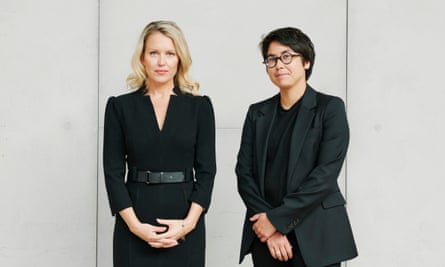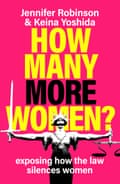[ad_1]
A woman tweets on social media that she is a survivor of abuse, using the hashtag #MeToo. She doesn’t name the alleged abuser but he sues her anyway.
A woman speaks in a private safe space of survivors about being raped. She tells the group that her ex-boyfriend raped her. Information is leaked. He takes his ex-girlfriend to court and gets a gag order that means she can never tell anyone about the rape again. The judge finds her guilty of “emotional abuse” and harassment against him.
The director of a domestic violence shelter is convicted for defaming a man who accused her of kidnapping his wife and child after they fled to her shelter.
Amber Heard writes in the Washington Post to advocate for better laws to protect survivors, and draws on her own experience as a survivor. A British judge finds she is a survivor in a decision based on detailed corroborating evidence, but she loses a defamation case on the same facts in the United States before a jury, which orders her to pay her ex-husband US$15m.
In each of these cases from around the world, the law failed to properly protect women’s right to speak.
As Lady Justice, with her scales and blindfold reminds us, the law is a constant balancing act, weighing interests and rights to achieve a just outcome. When it comes to freedom of speech about gender-based violence, she is weighing his right to privacy and reputation against her right to free speech and the general public interest in reporting that speech. Yet courts around the world are too often getting this balance wrong. The effect of this is to silence women and silence speech that is necessary to end violence against women. Victims and survivors of abuse are increasingly demanding that courts uphold her right to free speech and stop privileging his right to reputation and privacy.
Through our work as human rights lawyers, we have become convinced that we need to reclaim free speech from a feminist perspective. We want to make it clear that speaking out about gender-based violence, in the medium of your choice, is a human right, protected not just by the right to freedom of speech, but also the right to equality and the right to be free from violence. We believe these rights must also be placed in Lady Justice’s weighing scales to ensure her right to free speech is better protected in our courts so that we can put an end to gender-based violence.

But what about his right to be presumed innocent? What about his right to a fair trial? As any of our barrister colleagues in criminal law will tell you, when a woman goes to the police to report that a burglar breaks into and enters a house and steals an iPhone, she is believed. But once she mentions a sexual assault, a cloud of suspicion descends. In the wake of MeToo, where women are choosing to speak to the media or post online rather than go to the police, even more questions arise. Why didn’t she report it to the police? What if she is lying? What if she ruins his reputation and his career with a false allegation? Shouldn’t he have the right to a fair trial, rather than trial by media?
In the opening essay in The Right to Sex titled “A conspiracy against men”, Oxford philosophy professor and essayist Amia Srinivasan explains how in the United Kingdom only “0.23 per cent of rape reports led to a false arrest, and only 0.07 per cent of rape reports led to a man being falsely charged with rape”. Srinivasan concludes that “a false rape accusation, like a plane crash, is an objectively unusual event that occupies an outsized place in the public imagination”. She also explains that the myth of the false rape accusation is “a predominantly wealthy white male preoccupation”.
Nevertheless, this myth – that women make false rape and abuse claims – is having a resurgence alongside other regressive forces that threaten to undermine decades of feminist activism and legal progress on women’s human rights, gender equality and LGBTQI+ rights. Authoritarian rightwing figures have built platforms arguing that feminism and feminist activism have made gains at the expense of men and that MeToo has been an overcorrection. Some have described feminist reforms as a “backlash against masculinity” and “reverse discrimination”. Some argue that domestic violence perpetrated by women against men is under-reported and left out of media narratives. Some say that public allegations of gender-based violence undermine the presumption of innocence, a fundamental tenet of justice.
The debates in the wake of MeToo have not been over whether alleged perpetrators can be named in court (clearly they can be), but rather about whether newspapers and survivors can name those alleged of abuse online or in newspaper articles before any court proceedings have commenced. Many have argued that doing so amounts to “trial by media” and “violates the presumption of innocence”.
Men’s rights groups have argued that the naming of men online in relation to allegations of sexual assault, rape or abuse violates the presumption of innocence. They have even claimed that online movements such as #IBelieveHer (or #YoTeCreo in Spanish) violate this legal presumption. This is a basic misunderstanding of the principle. As Srinivasan explains, this is a “category error”, since “the presumption of innocence does not tell us what to believe. It tells us how guilt is to be established by the law: that is, by a process that deliberately stacks the deck in favour of the accused.” She explains that believing women operates therefore “as a corrective norm, a gesture of support for those people – women – whom the law tends to treat as if they were lying”.
Freedom of speech or expression is a fundamental human right and the cornerstone of a democratic society. International human rights law is clear that free speech can only be subject to restrictions that are necessary in a democratic society – and this includes “for respect of the rights or reputations of others”. Human rights courts have explained that free speech also admits a degree of exaggeration or even provocation – and speech that may be offensive. In other words, free speech should be the starting point, and it should be limited by libel and privacy laws only where that is strictly necessary.
Free speech also protects the right of the press to impart information and ideas that are in the public interest; the public has a right to receive such information. The MeToo allegations and reporting on powerful and wealthy individuals such as Harvey Weinstein, R Kelly and Jeffrey Epstein have underlined the importance of such reporting and its role in “shaking the tree”, as more women come forward after seeing other women speak out. Public interest reporting like this has warned and protected other women, and led to criminal prosecutions and justice for survivors.
In the balance between his right to reputation and her right to free speech, there is one important question that we think courts too often overlook: whether the comment contributed to a debate of general interest. In other words, the wider context is crucial. There is immense public interest in women being able to speak out about violence. Courts must place greater emphasis on the broader context of violence against women in society and the public interest in her speech about it.
Women need to be able to speak out to realise their civil and political rights, and to participate in political life and public debate, but also to advocate for gender equality and to call out violence and abuse.
In recent years, the United Nations has reminded states and governments that women’s human right to live a “life free from gender-based violence is indivisible from and interdependent with other human rights, including … freedom of expression, movement, participation, assembly and association”. There is also mounting recognition that freedom of speech is an equality issue. The UN and regional human rights bodies have recognised that every woman is entitled to the free and full exercise of her civil, political, economic, social and cultural rights, including freedom of expression, and they recognise that violence against women prevents and nullifies the exercise of these rights. Yet too often we see courts fail to recognise a woman’s right to speak, her right to equality and to be free from violence, and the broader context of the need to protect.
So how can we free her speech? How can we ensure that victims and survivors are able to come forward without the fear of being sued and silenced? How can we make sure that the law is balanced and fair, that it protects the presumption of innocence, privacy and reputation while upholding women’s rights to live a life free from violence? How can we ensure women can afford to defend their free speech? What damages should a survivor obtain for being sued and silenced? Shouldn’t women be compensated for the years of silencing and the stress of proceedings that they face?

These are just some of the questions that we believe we all need to start asking – and our lawmakers need to start debating. There are many women who have broken the silence and faced a brutal backlash – a backlash which plays out on the internet, in the media and through the courts. But we have also seen how women are organising, campaigning, litigating and fighting back. We hope their strategies and stories inspire more women to see that they aren’t alone and that they have options. Legal change is possible. And fight back we must.
Because if we don’t, how many more women will be silenced?
[ad_2]




